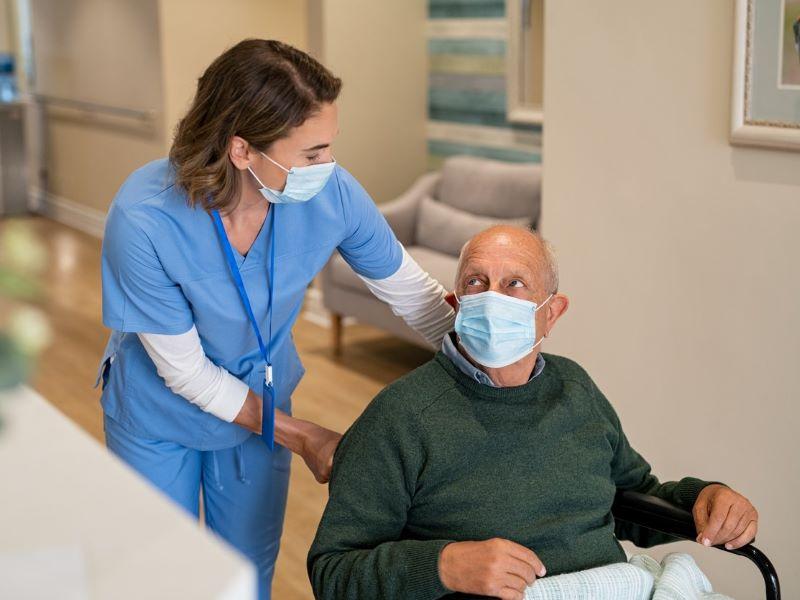
A robust complaints process for students working in NHS placements

Now is a crucial time to maintain robust processes for health and social care students to speak up about their experiences in healthcare settings. A time for universities to hold trust and transparency with their students.
In June 2022, the Royal College of Nursing (RCN) highlighted the impact of staff shortages on patient and staff care and safety, with one RCN survey indicating eight in 10 nursing shifts are understaffed and unsafe. The Nursing and Midwifery Council (NMC) more recently issued a statement on winter pressures noting the “incredibly tough” conditions in which people are working. Both the NMC and the Health & Care Professions Council have recognised that increased national pressures may require practice to adapt, however they call for staff to remain guided by their professional values and codes of conduct.
As Covid, winter pressures, short-staffing, organisational restructuring and financial shortfalls are creating stretched services, there are increasing tensions as universities and their placement partners strive for excellent placement experiences for students on health and social care degree courses.
- Collaborative learning cases: a fresh approach to applied learning
- When to use online laboratories for STEM teaching and why
- Resource collection: What foundations do students need to succeed in biosciences?
Within this challenging environment, we need to attract people to the professions and build the future workforce; one that is retained, feels valued and thrives. While training to become a nurse, physiotherapist, occupational therapist or social worker, to name a few of our caring professions, students spend up to half their time out in practice settings. The professional bodies and university regulations set the standards of practice education; however, as we experience increasingly troubling times in practice, we need to enable students to speak up about complaints and concerns from practice. While this is particularly pertinent in health and social care programmes, this advice could apply to any discipline in which students spend time in professional or practice settings.
Here are some tips and considerations on how universities can respond.
Have a robust process to manage complaints and concerns
- First, be clear about the difference between a complaint and a concern. A complaint is where a person is dissatisfied about how they have personally been treated whereas a concern regards practice, where the safety and well-being of patients, service users or others may be at risk, and possibly a safeguarding risk. Often an incident can be both a complaint and a concern, for example, staff shortages can affect both the standard of practice education and patient care.
- Reiterate to students that there is a professional responsibility to raise concerns and speak up for better standards of care – and all feedback is welcome.
- Recognise that speaking up takes courage so take time to thank the person.
- Remember students are at the start of their careers and if a student does not manage this escalation process perfectly, this is part of their learning journey.
A staged process helps manage complaints and concerns, for example:
- Stage 1 – Aim for informal resolution. The student reflects on their complaint or concern with their practice educator or tutor, either from the university or from the placement area. Immediate escalation may not be necessary or helpful. Ideally, most scenarios are successfully resolved through a local, informal conversation.
- Stage 2 – If not resolved, escalate. If unresolved from Stage 1, a record of the complaint or concern and details of actions taken to try and resolve the situation are recorded.
- Stage 3 – Further investigation. The record (known as an Alert Report in our university) is sent to the placement-providing organisation to investigate and provide a response to the university within an agreed time frame.
- Stage 4 – Outcome. The university will consider the response and take forward any lesson or action required for the course or the wider institution.
- Stage 5 - External reporting and reviewing the process. Universities regularly report to external health regulators, sharing themes of reporting and significant concerns.
Tips while managing complaints and concerns
- Keep the student informed throughout any investigation.
- Have a confidential central email address through which all communication regarding complaints and concerns is directed to keep information contained.
- Remain professional and impartial – the initial account of events may be convincing, however, there may be alternative accounts.
- Remember to signpost students to the university well-being team and that we have access to teams that specialise in governance, data protection and safeguarding.
- We require our placements to provide equal learning opportunities and to value diversity, so monitor equality and gender issues.
- A defensive response to a complaint or concern is not welcomed.
- Occasionally, an investigation will question a student’s practice, and then a Student Fitness to Practise process will come into action.
- Try to keep the student within the placement area if circumstances allow – otherwise, it is much harder to bring parties back together to resolve the complaint or concern.
- Uphold that a university will not tolerate any criticism or negative responses regarding a student’s actions when raising a complaint or concern in good faith.
Challenging aspects of managing complaints and concerns
- Assessing whether a response is adequate
- Keeping students supernumerary
- Evidencing microaggressions, inequitable opportunities and keeping the student voice being heard when there are power differentials in the workplace.
Unfortunately, occasionally complaints and concerns will not be resolved, there will remain differing accounts of events and the best we gain is knowledge that the issues are now on our radar to continue monitoring through placement evaluations and closer working with practice. Working with our placement partners, it is important to recognise that our students can shine a light on practice, as the canary in the mine, and speaking up can spark opportunities for development.
Helen Carr is senior lecturer in practice learning at Canterbury Christ Church University.
If you would like advice and insight from academics and university staff delivered direct to your inbox each week, sign up for the Campus newsletter.


